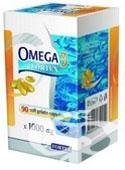Q&A
Обобщени въпроси и отговори от темата *
Какви са различните видове мастни киселини и техните характеристики?
Какво представляват трансмазнините и какви са техните вредни ефекти?
Какви са нуждите на организма от различни видове хранителни вещества?
* Предложените въпроси и отговори се генерират машинно от автоматизиран езиков модел на база потребителските мнения в темата. Генерираното съдържание може да е непълно, неактуално, подвеждащо или неподходящо. Вашите оценки спомагат за подобряване на модела и неговото усъвършенстване.
-
Какви са различните видове мастни киселини и техните характеристики?
Различават се наситените и ненаситените мастни киселини. Наситените мазнини са твърди, устойчиви на топлина и не гранясват, като палматиновата и стеариновата са най-често срещани. Ненаситените мазнини са течни, някои дори течни до -50 градуса по Целзий, но са неустойчиви на топлина, светлина и кислород и бързо се окисляват.
-
Какво представляват трансмазнините и какви са техните вредни ефекти?
-
Какви са нуждите на организма от различни видове хранителни вещества?
-
Какво е значението на холестерола за организма и какви са начините за неговото контролиране?
-
Какво е значението на незаменимите мастни киселини и какви са техните положителни ефекти върху тялото?


 за систематизираната информация, която много ме вълнува, но...си малко далече!
за систематизираната информация, която много ме вълнува, но...си малко далече! 


 ...няма много данни за съдържанието на опаковката...
...няма много данни за съдържанието на опаковката...